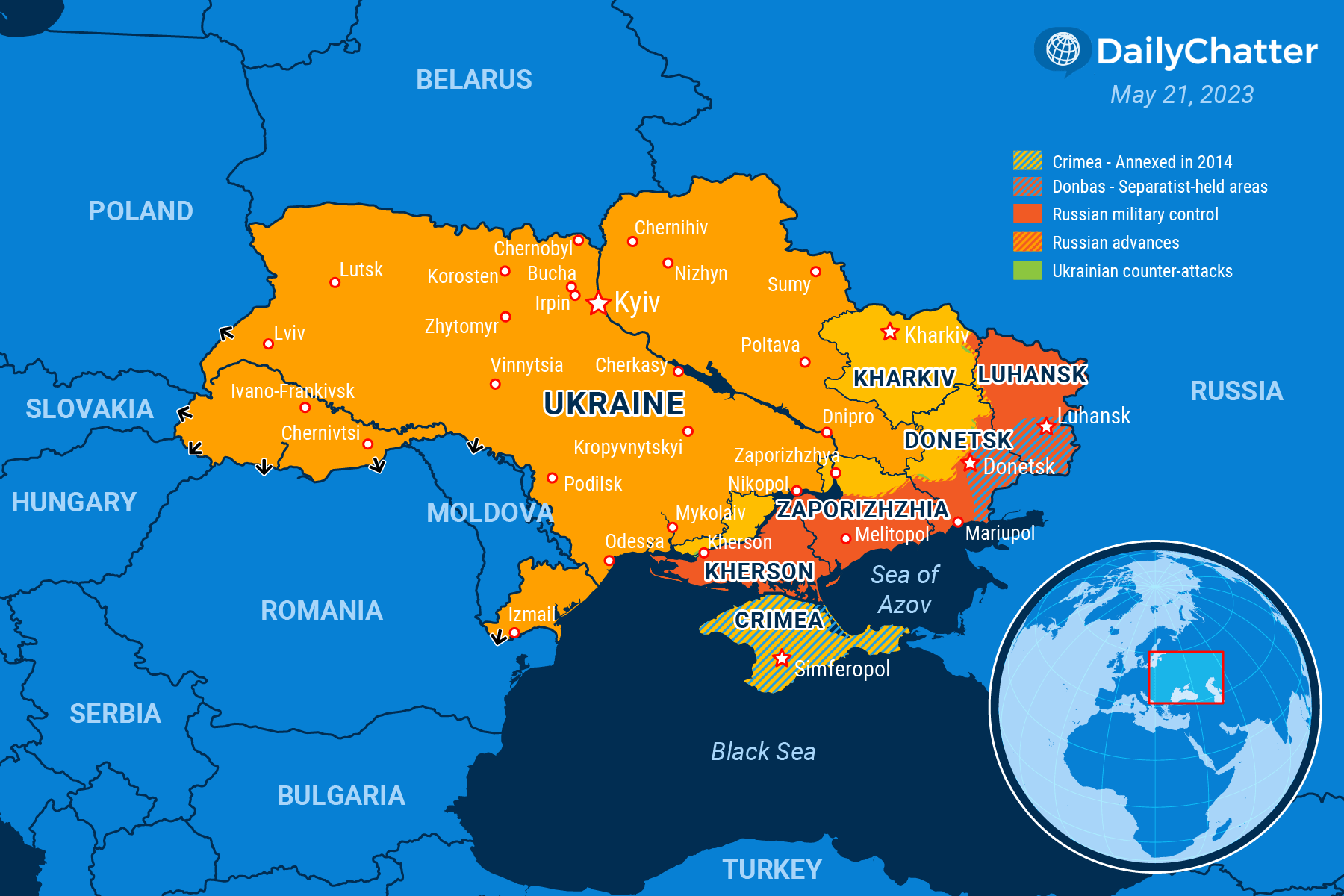Ukraine Briefly
November 03, 2023Ukraine, Briefly
RussiaUkraine

|
Listen to Today's Edition
|
This week, Russian President Vladimir Putin revoked Russia’s ratification of the Comprehensive Nuclear-Test-Ban Treaty (CTBT), a move aimed at aligning Moscow with the United States, which has signed but not ratified the treaty, Al Jazeera reported. The CTBT, drawn up in 1996, bans all nuclear explosions, including live tests of nuclear weapons. It is unclear whether Russia will resume nuclear weapons testing – Putin has said he remains undecided on the matter. Russian officials suggested that Moscow would only resume nuclear tests if the US does so.
The US expressed concern over Russia’s withdrawal from the CTBT, viewing it as a potential risk to the global agreement against nuclear testing. The move may be a pressure tactic in response to US support for Ukraine in its conflict with Russia. The last remaining bilateral nuclear weapons treaty between the US and Russia is New START, set to expire in early 2026, and has been suspended by Russia since February. Discussions on strategic stability and arms control have been stalled, with Moscow insisting on a change in the US’ hostile stance toward Russia before resuming such dialogue.
Also this week:
- In a candid admission, Ukraine’s top commander, Gen. Valery Zaluzhny, has acknowledged that the conflict with Russia has reached a “stalemate,” with no immediate prospects of a significant breakthrough, according to the New York Times. The use of modern technology, precision weaponry, and drones by both sides has resulted in a protracted positional war, preventing either party from making substantial gains. Gen. Zaluzhny highlighted the need for advancements in electronic warfare and expressed concerns about being drawn into a protracted conflict similar to World War I. Western-supplied weapons have not yielded the desired results, and the willingness of Western allies to continue providing support to Ukraine is waning, partly due to the conflict between Israel and Hamas diverting attention and resources.
- Ukrainian President Volodymyr Zelenskyy’s support for Israel during its conflict with Hamas has complicated Ukraine’s efforts to win the support of Arab and Muslim nations in its war against Russia, the Washington Post reported. Zelenskyy’s backing of Israel has brought attention to Russia’s close relationship with Iran, which supports Hamas and supplies weapons to Moscow. However, Zelenskyy’s stance has strained relations with countries such as Turkey, Saudi Arabia, and Qatar, which have previously supported Ukraine. These nations have accused the West of double standards in the Israel-Gaza conflict.
- European Union leaders endorsed a plan to use the profits generated by frozen Russian state assets for reconstructing Ukraine, Politico reported. Following a summit by the European Council, leaders called for the European Commission to propose legal mechanisms to facilitate the use of profits from Russian assets held in the EU. These assets, worth over Eur200 billion, were frozen as part of sanctions imposed at the beginning of the conflict between Russia and Ukraine. The proposal is to use the profits generated when Russian securities reach maturity and which are reinvested by financial intermediaries to support Ukraine’s recovery and reconstruction. However, there are concerns among some EU capitals and the European Central Bank that this move could disrupt financial markets and weaken the euro’s status as a reserve currency. Meanwhile, in response, Russia warned that it would confiscate assets from EU countries if the bloc moved forward with the plan, according to Voice of America.
- Representatives of more than 65 countries participated in a two-day conference in Malta this week to discuss and endorse Ukraine’s peace plan, Euronews wrote. The conference aimed to secure international support for President Volodymyr Zelenskyy’s 10-point peace proposal. Notably, Russia was not invited to these talks, and China chose not to participate. The event marked the third round of discussions in recent months and represented a diplomatic win for Ukraine, as international support for its peace plan continued to grow. During the conference, five of the plan’s 10 points were successfully addressed, focusing on key areas such as nuclear safety, energy security, food security, prisoner releases, and the restoration of Ukraine’s territorial integrity.
- A mob of hundreds of people stormed an airport in the Russian region of Dagestan, targeting a flight from Israel, the Associated Press noted. The mob waved Palestinian flags and shouted anti-semitic slogans, an incident tied to the ongoing conflict between Israel and Hamas in the Gaza Strip. Clashes with the police erupted during the unrest and more than 80 people were detained. President Putin blamed the violence on “agents of Western special services” in Ukraine, but offered no evidence to support this claim. US officials denied the allegations and called Putin’s allegation “classic Russian rhetoric.” Following the incident, Israel called on Russian authorities to protect Israeli citizens and Jews in Russia. Israel has also updated its travel warning to the highest level for Dagestan and other regions in southern Russia, advising Israelis to avoid them.
Not already a subscriber?
If you would like to receive DailyChatter directly to your inbox each morning, subscribe below with a free two-week trial.
Support journalism that’s independent, non-partisan, and fair.
If you are a student or faculty with a valid school email, you can sign up for a FREE student subscription or faculty subscription.
Questions? Write to us at hello@dailychatter.com.

